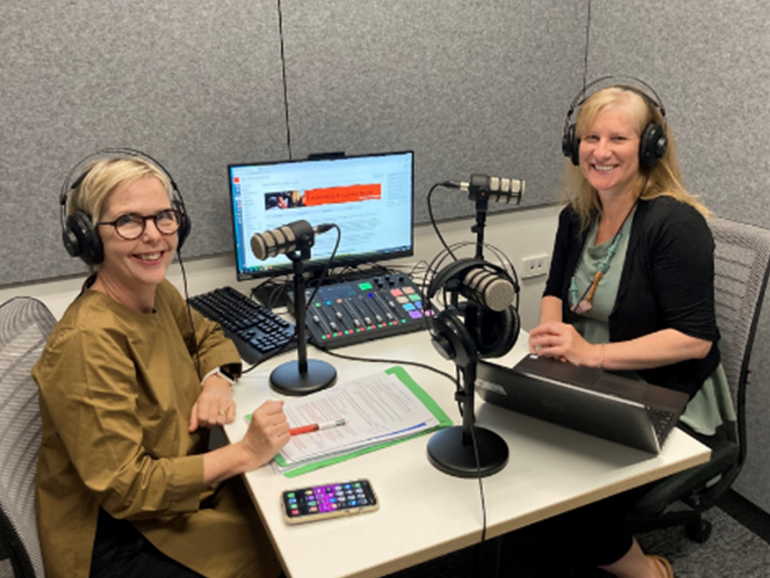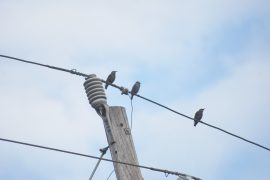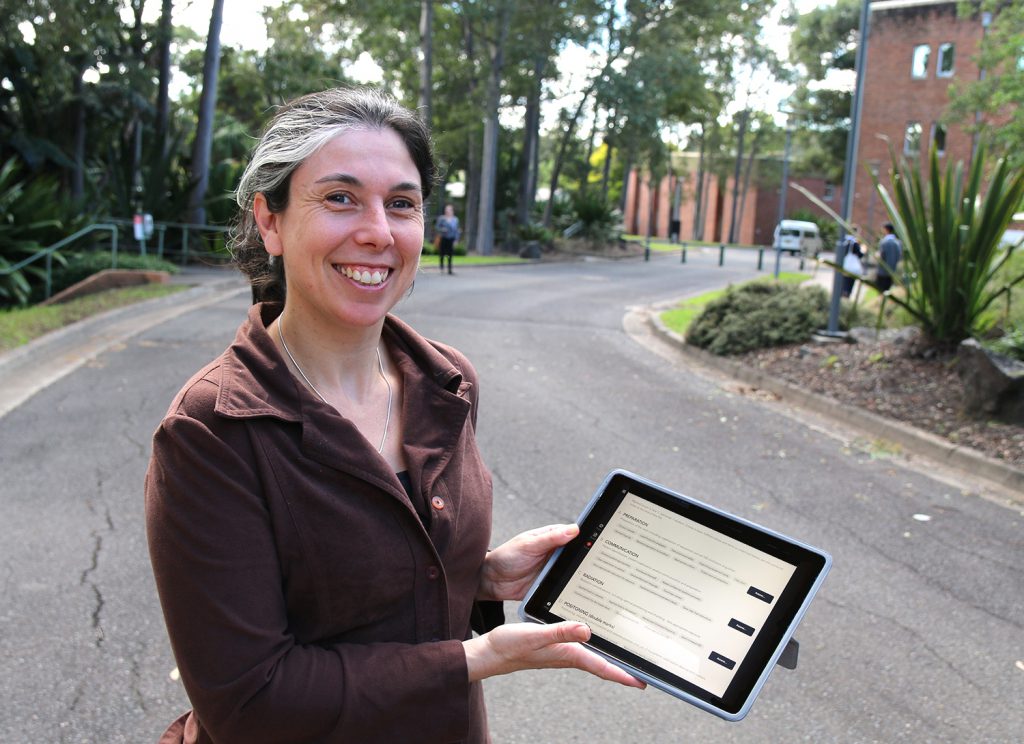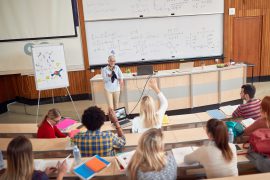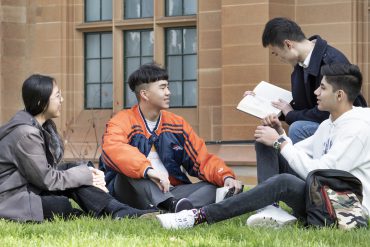Population Health
Population Health is a first-year unit for pre-registration nursing students that takes a broad perspective of health and focuses students on the social and non-medical determinants that shape and influence population health outcomes. We have approximately 250 students enrolled in this core theoretical unit in our undergraduate nursing programme. There are some unique details to this unit that have driven the pedagogical approaches we use.
Students tend to start with a fairly individualised concept of health and a narrow definition of the nursing role, so it can be challenging to engage them in ‘bigger picture’ concepts while translating this information to the individual clinical context.
To support students in their first semester, we use a themed approach that includes three 4-week blocks. Each theme is underpinned by concepts of social justice, equity and cultural safety.
- Theme 1: Understanding health-uses a Primary Health Care perspective to focus on social and other non-medical determinants of health; how we define population groups; and the impact of global narratives on health care delivery.
- Theme 2: Measuring health – introduces students to basic principles of epidemiology, sourcing data and basic epidemiological study design
- Theme 3: Strategies to improve health covers concepts of health literacy and the role health promotion and health education play in improving patient engagement and self-management.
Rationale for change
To optimise student engagement, the unit introduced a team-based learning (TBL) approach using key principles that focus on student preparation, regular assessment with quick feedback and application of key concepts to health issues. This pedagogical shift supported assessment review. The birth of the podcast assessment came about during a team brainstorm session with colleagues, Dr. Heather Shepherd and Amelia Di Paolo. We had just moved to the new Susan Wakil Health Building (SWHB) and we were searching for a team assessment that would simultaneously apply unit concepts, develop communication skills and embrace the new purpose built SWHB.
The podcast assessment
Our key aims with this assessment were to improve communication, participation and engagement within the student cohort, and for students to engage with the content throughout the semester, not just at key assessment dates. Our first-year students can be reluctant to discuss and present health information publicly, so the ability to translate academic terminology into easily accessible language was important. Finally, while digital mastery was not the focus, we felt it important to introduce students to other modes of health communication. We developed some podcast guidelines (PDF) to assist students.
How we did it
We selected three topics for students to choose (Vaping; Smoking and Obesity) that were broad ranging with a wide range of applicability to the three core unit themes and plenty of material to work with. Students were asked to develop a 10-minute podcast in their teams, with a key health message and submit their audio file (podcast), podcast summary and transcript, a list of academic sources used in preparation, and a group charter. The assessment was allocated 10% of the unit mark. We developed a rubric (PDF) to mark the podcast.
Listen to a student podcast on smoking, or download the transcript.
Supporting students
One of the challenges our first-year students face is building peer relationships and our team structure works well in nurturing this. Prior planning fosters positive team relationships and to establish these teams our students complete a pre-unit survey using a range of questions to create a diverse mix of six students per team. Student teams were asked to map their team aims and develop a Group Charter that identified common goals and metrics for success. This was an assessable document submitted early in semester. Download a PowerPoint template for a group charter.
Student support for the Podcast assessment throughout the semester was developed in several ways. Each tutorial, students had an opportunity to work on podcast plans and ask questions of the teaching staff and we engaged early with the Create Space team to support our students in using the Podcast Studio. The Create Space team linked into two online lectures to briefly discuss their role and take students on a virtual tour of the Podcast studio in SWHB. Students received a template and guidelines at the beginning of semester that provided structure to podcast development and Heather and I even took to the podcast studio ourselves to record assessment instructions for students!
Reflection
While we wait on formal evaluation of this assessment, we have asked students to complete a mid-semester and end of semester survey, to evaluate this assessment’s efficacy in achieving our core aims of communication, participation and engagement. Despite a low response rate to the survey, those that participated agreed or strongly agreed that there were clear aims for the assessment and that resources were easily accessible. However, students reported low confidence in their perceived ability to use alternative forms of communication, like the podcast. We hope to see improved perceived confidence in the next survey. There has been considerable positive feedback on the impact this has had on developing new relationships in class, and other anecdotal feedback from students has generally been positive, particularly in relation to developing networks across the student cohort and applying key concepts of the unit in a different format. Some students also queried the assessment workload in relation to the 10%-mark allocation. Finally, we know that team assignments can lead to workload imbalances and we have needed to mediate when requested, although this has been rare.
Planning for next year….
So far, so good, at this stage we consider this assessment worth pursuing next year with some minor revisions. We acknowledge the contribution of the Create Space team (Crystal Choi and Kristna Gurney) and their peer learning advisors who have made the technology aspects of this as seamless as possible for us and our students.
Correspondence or enquiries to [email protected]

